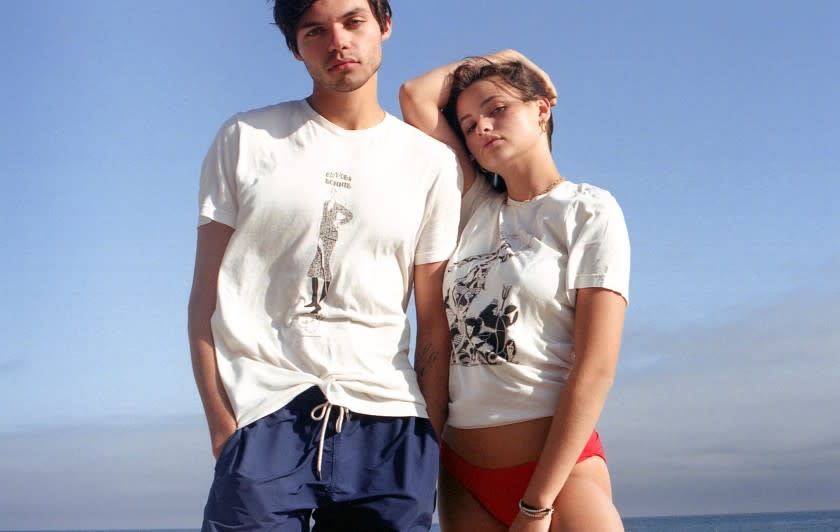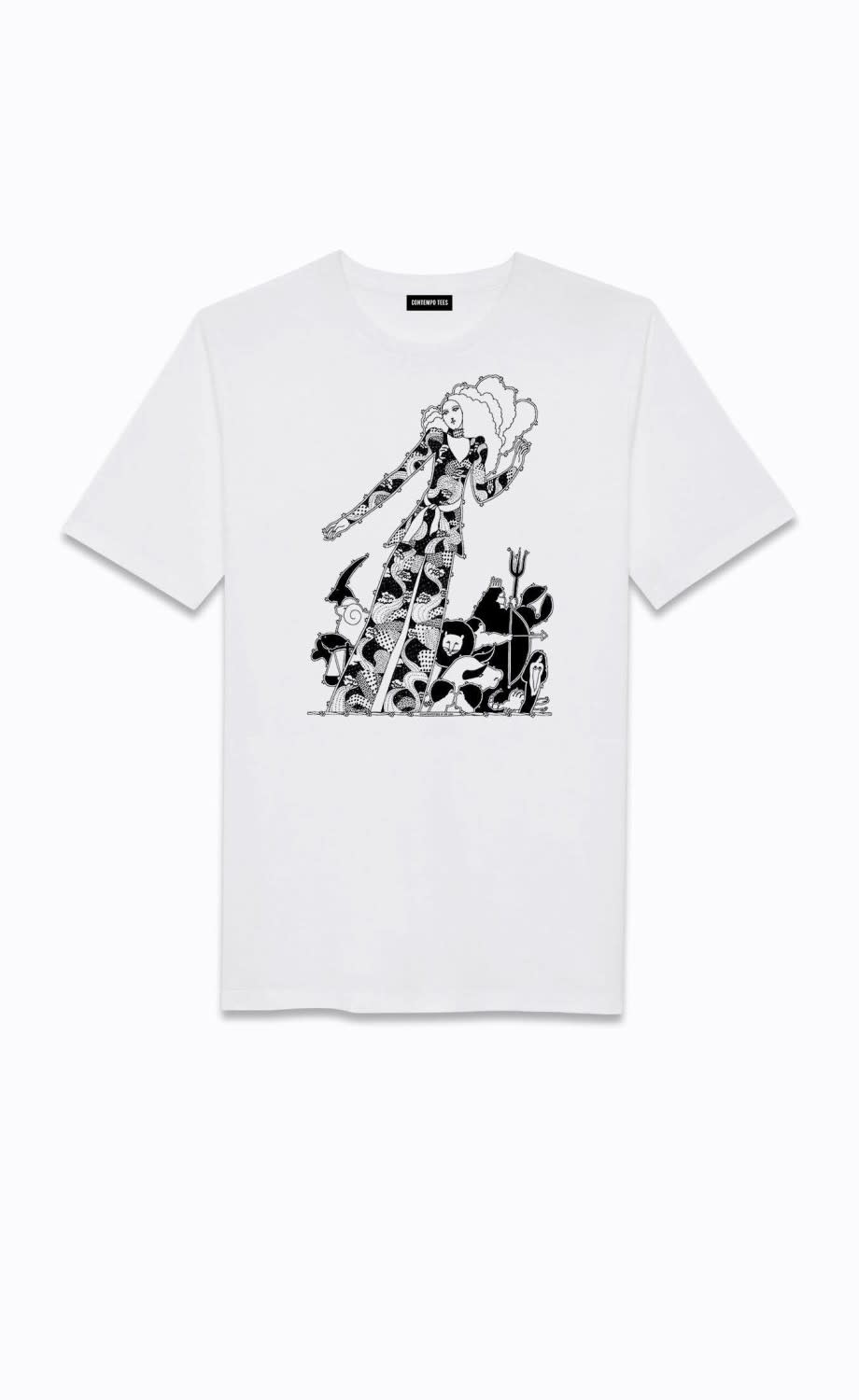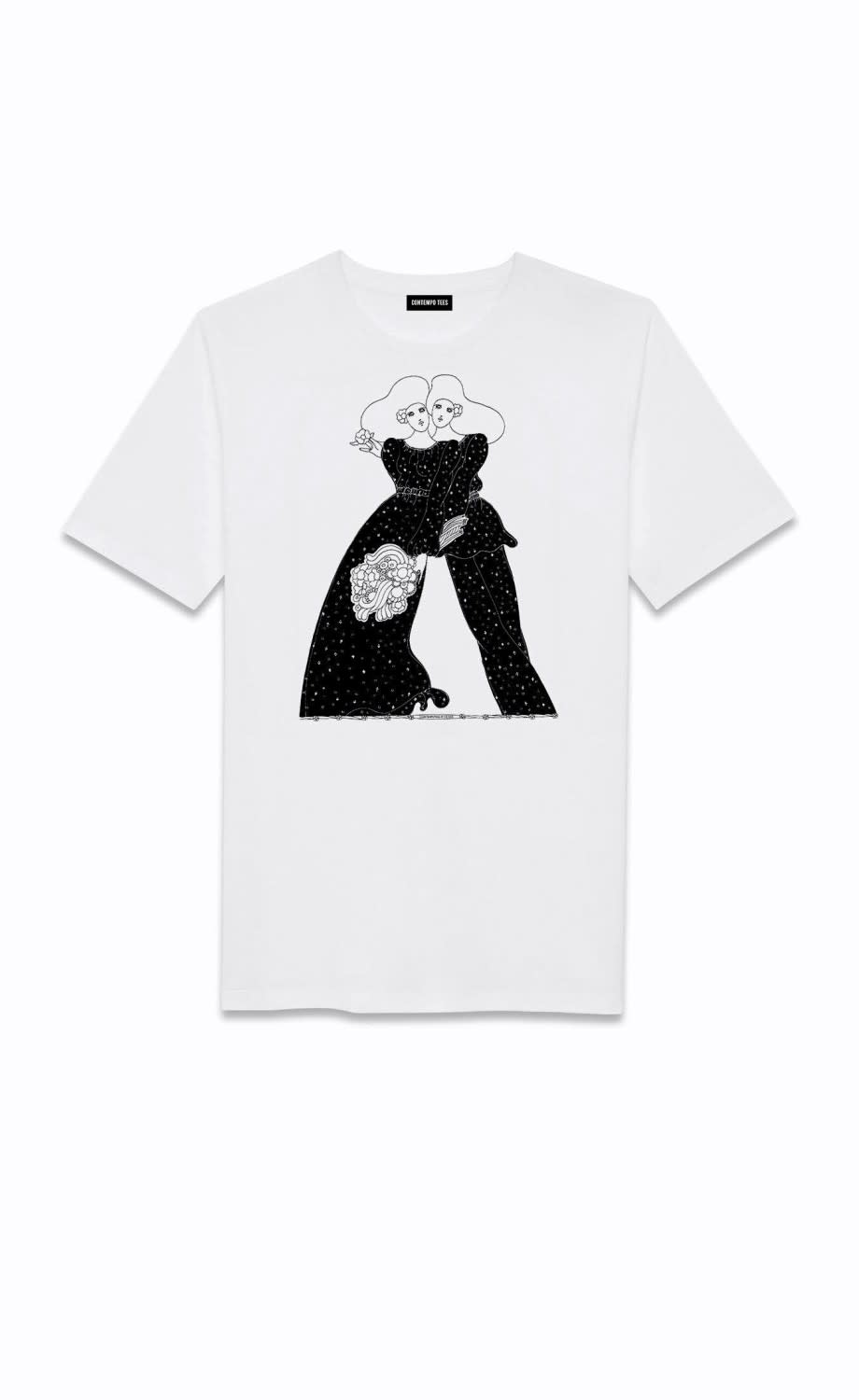Remember Contempo Casuals? A new T-shirt line is betting that's a yes

Contempo Casuals, the L.A.-based retail chain that gave many a budding fashionista of decades past their first taste of on-trend merchandise (a reputation that helped earn it a prominent onscreen cameo in the 1995 movie "Clueless"), might have gone to the great mall in the sky two decades ago, but it never left our hearts and minds.
The name alone triggers a wave of nostalgia, and Facebook community pages overflow with photos of its ’80s-era bustier dresses, tie-dyed overalls and denim hot pants.
Every few years one fashion publication or another will ask — and summarily answer — the “Whatever happened to Contempo Casuals?” question. (The answer is nowhere near as intriguing as the question makes it seem. In 1995, Neiman Marcus sold the 239-store chain to Wet Seal, which by 2001 had rebranded the remaining Contempo Casuals outlets as either Wet Seal or Arden B stores, effectively mothballing the brand.)

Wil Friedman cofounded what would become Contempo Casuals with his wife, Dottie, in 1962, and the brand was sold to Neiman Marcus’ parent company 16 years later. Friedman saw opportunity in the way the Contempo Casuals name continued to resonate well into the 21st century and approached his grandson, Max Rubin, with a plan to capitalize on it.
“He’d always had a real entrepreneurial mindset, and it’s something he always encouraged in me,” Rubin, 21, said of his 88-year-old grandfather, who died in September 2019. “And one day two years ago — out of nowhere — I get an email from him saying that he has an idea for a business.”
That idea, Rubin said, was to delve into the extensive collection of original advertisements, sketches and other materials Friedman had held onto for decades with an eye toward putting some of the images on T-shirts that would find favor with those nostalgic for Contempo Casuals.
At the time of Friedman’s death, Rubin said, the options had been winnowed down to six 1960s-era hand-drawn designs that had previously appeared in magazine, newspaper or billboard advertisements.
Rubin, who lives in L.A. and is studying business administration at Chapman University, picked three of those designs to represent the inaugural Contempo Tees offering that launched online at contempotees.com on Oct. 16.
The black line drawings on white unisex T-shirts ($28 each) all have a groovy vibe to them: women with clouds of hair wearing boldly patterned skirt suits, pantsuits or dresses, with flowers, cats and abstract curlicue designs heightening the trippy feel.

Rubin said the three-tee launch was an opening salvo of sorts and an effort to gauge consumer interest. "The plan is, yes, to print some additional [T-shirt] designs but also really get into a clothing brand of itself, to bring back vintage styles with a modern touch,” he said.
There's at least one potential snag if Rubin succeeds in leveraging his grandfather's legacy into a full-blown apparel collection, one that pays homage to the beloved brand in a way that resonates with those who remember Contempo Casuals. Don't expect the Contempo Casuals name itself to appear anywhere.
That’s because Wet Seal, which shuttered the last of its remaining bricks-and-mortar stores back in 2017, still owns the intellectual property rights.
This story originally appeared in Los Angeles Times.

